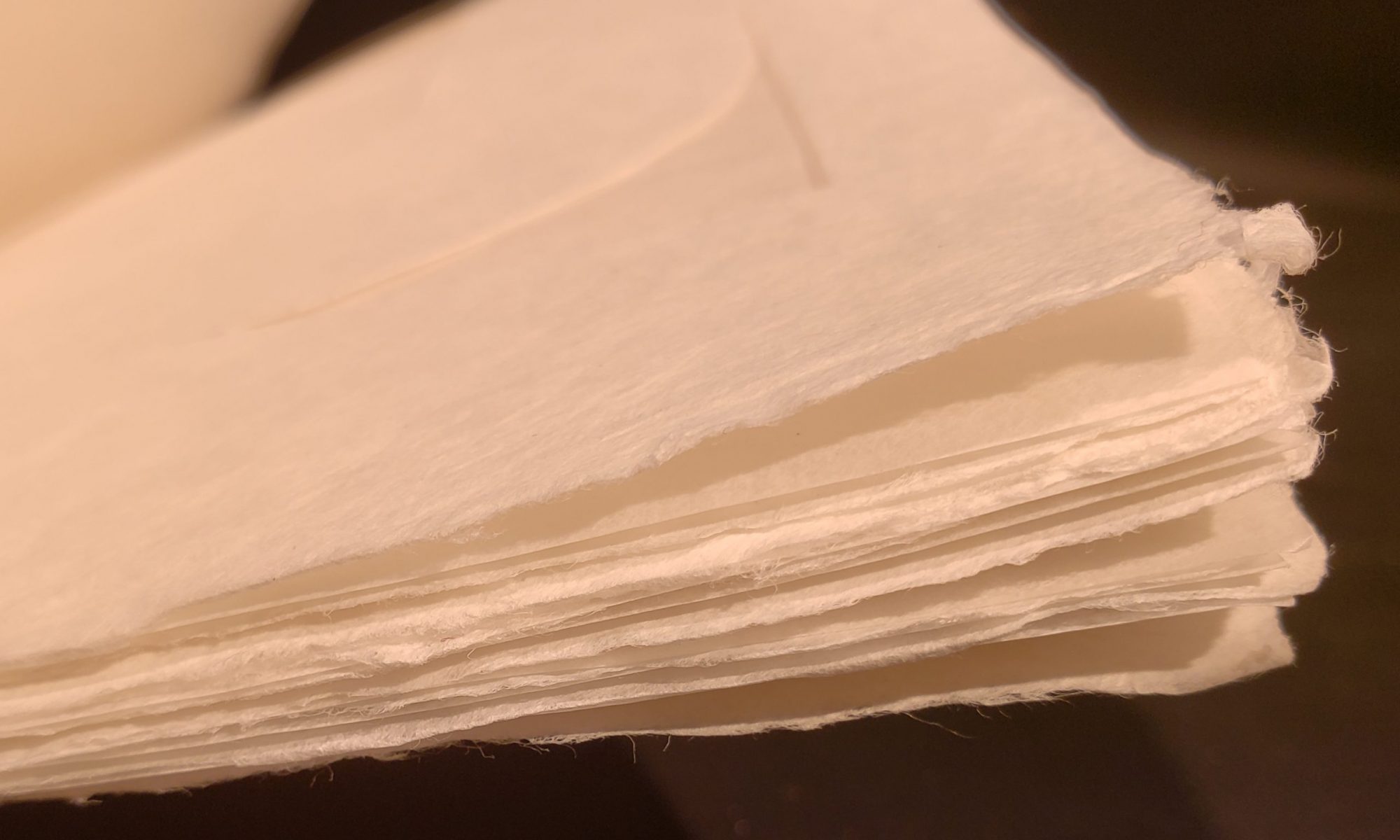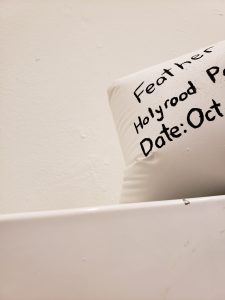
A block of plaster reads “Feather Holyrood Park Date Oct 18, 18”. What is in it? Is it a feather? Is it from Holyrood Park? Is the date when it was found? When it was cast? Several other blocks of plaster just like it, labelled with objects, places, and dates sit next to the first. All are plaster casts of the inside of a plastic bag. But what does it mean?
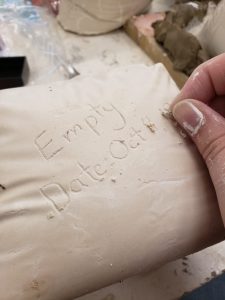
Perceptions is an experimental piece that developed through several stages. First from the idea of preservation. Of particular interest was the dynamic of preserving the natural world in an artificial container (a plastic bag) and the question of how acceptable is preservation if it removes the object from sight and ultimately destroys it?
This went further, by challenging the audience to if they trust the labels, as they very well could be false. Exactly how much trust does a viewer give the artist and how much should they?
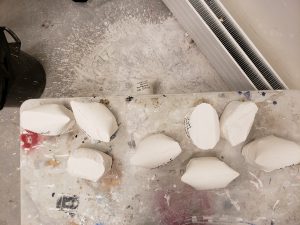
On a tangential topic, trust is related to the idea of truth. This connects back to a philosophy question concerning art and how much truth does art reflect and how much distortion. Aristotle sums this nicely when he wrote, “The aim of art is to represent not the outward appearance of things, but their inward significance.” So what is truth in art, particularly in a piece that challenges perceptions?
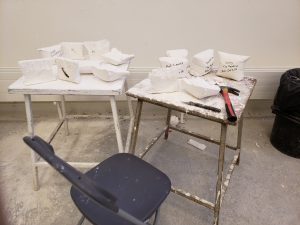
The work developed further when the casts were broken open to determine if there was an object, what object, and what its condition was in. Not only where the questions of trust answered (yes, some labels were false) and the reflection on preservation showed the destruction of some of the natural materials, but a new artwork was created in the lasting impressions that were found.

Perceptions deepest impact was in the process of development and discovery, how a piece of artwork changes over time and reflection.
